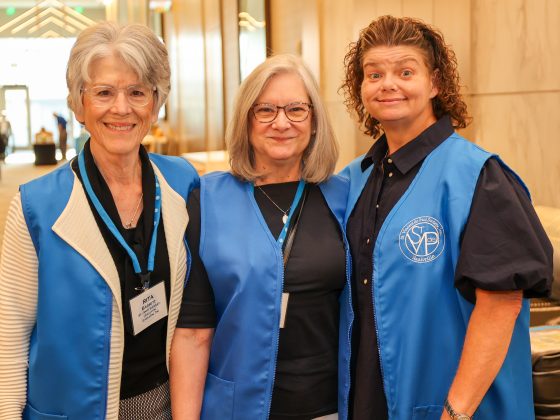When we hear the expression “from the heart” we understand it to mean that the speech or action is both emotional and sincere; it is powerfully felt, so much so that the action it inspires cannot be resisted. When we open our hearts, we invite others in so that they may know us more deeply. When we are sad, our hearts are broken; when happy, they fill with joy.
St. Vincent often expressed his own love, sympathies, and joy by speaking of his heart, once saying to his beloved friend St. Louise that “my heart is no longer my heart, but yours, in that of Our Lord, Whom I desire to be the object of our one love.” [CCD I:172]
Our hearts are moved by each other, moved by pain, moved by joy, and moved by love most of all; the love of family, of friends, of romance – and the greatest of all loves, agape, the love of God. “That is because,” Bl. Frédéric once explained, “the human heart easily allows itself to be captured by love and there is always much love there where there is much faith.” [Letter 145, to Velay, 1837]
Just as our hearts seek one another and seek God, He also seeks us. His love comes first, unbidden and gratuitous; he is, as St. Catherine of Siena said “crazy in love” with us. [Dialog 153] This is the love that truly fills our hearts. It is the love that Frédéric said “which gives itself without diminishing, which shares itself without division, which multiplies itself, which is present in many places at once.” [Letter 107, to Curnier, 1835]
When we visit the neighbor, seeking to learn what Frédéric called “the secret of his lonely heart” [Baunard, 279], we can really only do so by “serving them from the heart” as St. Louise taught. [SWLM, a.85]
Our first Rule, in 1835, explained that Members share a friendship that “will make of all our hearts one heart.” Our vocation calls us to share that friendship not just with each other, but with the neighbors we serve; to share our hearts, and the love of God within them. As was said at the Society’s National Assembly of 1911, “were we to search carefully, we would find in this world, more hungry hearts than hungry stomachs… Humanity is made up of hearts, and hearts need sympathy more than material aid.”
This is the great lesson of our patron, and the reason Frédéric said in the first annual report that ought to model not only his works, but “the manner in which he understood his works. Charity does not consist so much in the distributing of bread as in the manner it is distributed.” Vincent’s life, he said, “is a life to be carried on, a heart in which one’s own heart is enkindled.” [Letter 175, to Lallier, 1838]
In this, may we each have, as Vincent wished for Louise, “a young heart and a love in its first bloom for Him Who loves us unceasingly and as tenderly as if He were just beginning to love us.” [CCD I:408]
Contemplate
Do I let the neighbor in to my open heart?




This reading struck me in particular because to let the neighbor into my open heart, I actually have to listen. The active listening changes the visit from an interview or an interrogation, into a warm meeting where feelings and situations can be shared. Obviously, there is a need at some point to obtain a more specific idea of the need presented but we as Vincentians have to first build that trust with listening, with empathy to the neighbor’s whole story. Like the woman I encountered in Manhattan who was panhandling who wanted me to understand that she was a schoolteacher, lest I believe she was always poor. I have never forgotten her and that’s probably a really good thing. I remain grateful for her life lesson.